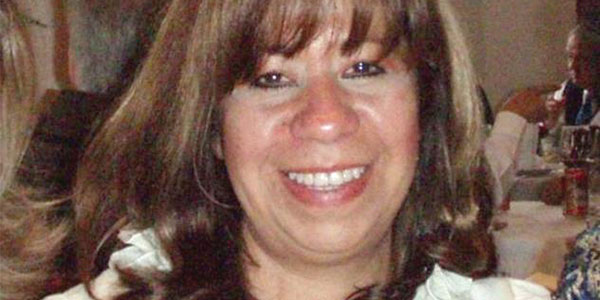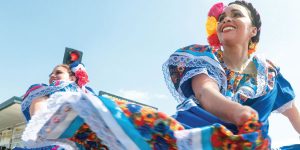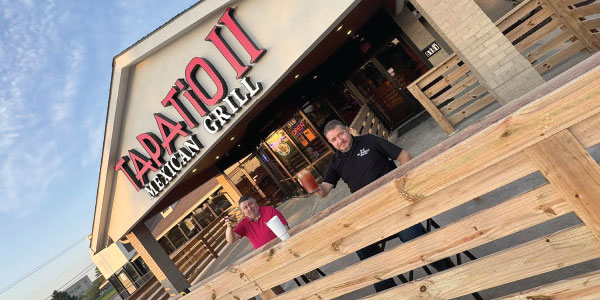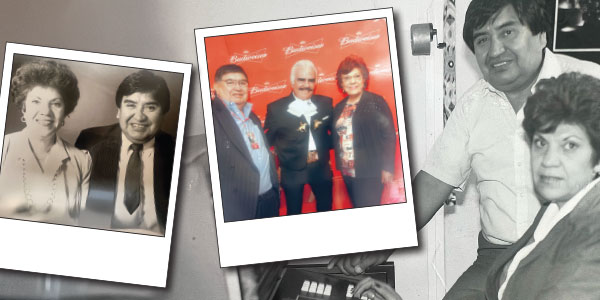
Interview by Tere Siqueira
Dos Mundos honors October as Breast Cancer Awareness Month. As a show of that support, the newspaper presents the following transcript of a recent interview with Patricia Uribe, who shared her story of being a breast cancer survivor:
Dos Mundos: Tell us the story about how you got diagnosed.
Patricia Urbina: Well, … (I’m one of) three sisters and one of us had breast cancer. After she was (diagnosed), we used to get checked every year. One day, I started to feel pain in one of my breasts, like the one you get when you are on your period. As I had (done with) the previous experience of my sister, I decided to check myself. I realized I had something weird in one of my breasts. I immediately went to the doctor. The doctor told me that it was a 95 percent chance that I had cancer. So that’s how everything started.
DM: How was the process of your treatment?
PU: I listened to other doctor’s opinions. But in the end, I decided to stay with my sister’s doctor. We were going to perform the mastectomy when my other sister also got diagnosed. This process was very difficult for me. The treatment had a lot of obstacles. First, I got an infection because they put (in) the catheter wrong. In addition, I was doing chemotherapy. I felt emotionally broken…. I used to cry every day. The thing that scared me the most was to lose a part of my body.
DM: How did you decide to do the mastectomy?
PU: I wasn’t sure if I wanted to do it until I got a visit from a friend and her husband. Her husband is a doctor, and what he told me changed my mind about the surgery. I was 44 years old when I got diagnosed. So he asked me if I wanted to have more kids and I didn’t. Finally, he told me that if I wasn’t having more kids I really didn’t need my breasts. In that moment, my breasts were risking my life. That conversation made me realize that my life mattered more than my breasts.
DM: Who was your biggest source of support in this situation?
PU: I found strength in God and the support of my husband. Without my husband, I wouldn’t have made it. He was my biggest support. Not all men stay in situations like this. But my husband was always there. He never made me feel like less of a woman because I didn’t have my breasts. Our relationship never changed because of it.
DM: What was the biggest lesson that you got from this experience?
PU: Once I got the mastectomy, I felt like I wasn’t complete. But later, I wanted to grab something and I realized I had my hands, my head, my feet, my intelligence and it hit me. I realized that having your breasts doesn’t mean that much. Now I know that if I hadn’t had the surgery I wouldn’t enjoy what I’m enjoying now.
DM: According to your experience, what would you advise to the women out there?
PU: I always tell women to get checked up. I was part of a social media breast cancer awareness campaign. You can’t prevent cancer, but early detection can save your life. For me, it did.
_______________________________________________________________________________________
Patricia Urbina: Sobreviviente de cáncer de mama
Dos Mundos dedica octubre como el mes de sensibilización del cáncer de mama. Como muestra de ese apoyo, el periódico presenta la transcripción de una reciente entrevista con Patricia Uribe, quien compartió su historia sobre ser una sobreviviente de cáncer de mama:
Dos Mundos: ¿Cuéntanos la historia de cómo te diagnosticaron?
Patricia Urbina: Bueno, … (yo soy una de) tres hermanas y una de nosotras tenía cáncer de mama. Después de que ella fue diagnosticada, solíamos hacernos un chequeo cada año. Un día, empecé a sentir dolor en uno de mis pechos, como el que se tiene cuando estás en tu período. Como tenía la experiencia previa de mi hermana, decidí revisarme. Me di cuenta que tenía algo raro en uno de mis pechos. Inmediatamente fui al médico. El médico me dijo que había un 95 por ciento de probabilidades de tener cáncer. Así fue como todo empezó.
DM: ¿Cómo fue el proceso de tu tratamiento?
PU: Escuché las opiniones de otros médicos. Pero al final, decidí quedarme con el doctor de mi hermana. Íbamos a realizar la mastectomía cuando mi otra hermana también fue diagnosticada. Este proceso fue muy difícil para mí. El tratamiento tenía muchos obstáculos. En primer lugar, sufrí una infección porque me pusieron mal el catéter. Además, estaba tomando la quimioterapia. Me sentía emocionalmente destrozada …. Solía llorar todos los días. Lo que más me asustó fue perder una parte de mi cuerpo.
DM: ¿Cómo te decidiste a hacer la mastectomía?
PU: No estaba segura si quería hacerlo hasta que recibí la visita de una amiga y su esposo. Su marido es médico y lo que me dijo cambió mi opinión acerca de la cirugía. Tenía 44 años cuando me diagnosticaron. Así que me preguntó si quería tener más hijos y no quería. Finalmente, él me dijo que si no iba a tener más hijos, en realidad no necesitaba mis senos. En ese momento, mis senos estaban arriesgando mi vida. Esa conversación me hizo comprender que conservar mi vida importaba más que conservar mis senos.
DM: ¿Quién fue tu mayor apoyo en esta situación?
PU: Encontré fuerza en Dios y el apoyo de mi esposo. Sin mi marido, no lo habría logrado. Él fue mi mayor apoyo. No todos los hombres se quedan en situaciones como esta. Pero mi marido siempre estuvo ahí. Nunca me hizo sentir menos mujer por no tener mis senos. Nuestra relación nunca cambió por eso.
DM: ¿Cuál fue la lección más grande que te dejó esta experiencia?
PU: Cuando me realicé la mastectomía, sentía que no estaba completa. Pero después, quería agarrar algo y me di cuenta de que tenía mis manos, mi cabeza, mis pies, mi inteligencia y al fin entendí. Me di cuenta que tener tus senos, no significa tanto. Ahora sé que si no me hubiera hecho la cirugía no disfrutaría lo que estoy disfrutando ahora.
DM: Según tu experiencia, ¿qué le aconsejarías a las mujeres?
PU: Siempre le digo a las mujeres que se revisen. Fui parte de una campaña de sensibilización sobre el cáncer de mama en las redes sociales. No puedes prevenir el cáncer, pero la detección temprana puede salvar tu vida. Para mí, lo hizo.










